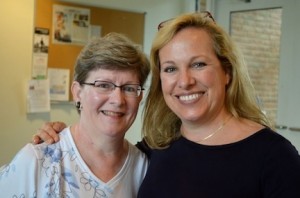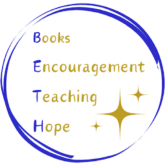
Photo copyright Star Black, 2012
As I have done for the past few weeks, today I’m sharing an excerpt from the interview I did with Emma Walton Hamilton for the Children’s Book Hub on January 8, 2013.
Emma is a bestselling writer, along with her mother, Julie Andrews, of picture books, easy reader/chapter books and middle grade novels. She is also an insightful freelance editor who has a keen eye, a knowledge of craft, an ability to see the whole picture, to see the story arc and to help writers to fully realize the potential of their manuscripts. (I speak from experience. Emma has worked with me on several of my manuscripts through manuscript evaluations and line edits, and she has helped me enormously in taking my writing to the next level.)
In today’s excerpt from the full interview, Emma and I talk about how she got into editing. We had been discussing her theatre experience, and segued very naturally into the subject of her editing work.
BETH: Having the three-act structure is so a part of you and a part of the way you think and how you tell stories, I’m sure that has formed how you tell stories yourself and also how you help others.
EMMA: I think so. I really do. I think my theater background, acting background, directing background, all of that understanding of the dramatic arc – the need to have a problem to solve, or a conflict, to have believable characters that you care about. All of those things overlap, and I think that very much helped me understand very quickly what the ground rules for writing children’s books were. I will also add that when my mom and I started writing together, it was a very fast and steep learning curve for us, learning how to write children’s book, particularly picture books. We were very fortunate in that we had a wonderful editor at the time, Katherine Tegen. We started out at Hyperion Books for Children, which was part of Disney back then, and then Katherine moved to Harper Collins and we followed her – because she said, “If you come with me to Harper Collins I can give you an imprint, where you can not only publish your own books but books by other authors as well.”
BETH: I can just imagine your eyes lighting up.
EMMA: Oh my gosh, that was so exciting. We did that for six years at Harper Collins before moving on to Little Brown. I think, again, for me that was another crash course in all things to do with writing and editing, because I became not only co-author with my mom on the books that we wrote together but also editorial director of all the books that we published under the Julie Andrews Collection imprint. We acquired books by other authors, everything from picture books to novels, and I edited them – because Katherine had her plate full with her own imprint.
I was functioning like an editor within a large house but of my own little imprint, and she mentored me. It was phenomenal. She gave me tremendous freedom and support, and yet I learned so much about the nature of children’s books and the nature of the business, and I think that – and my background as a dramaturg, having taught me so much about how to work with writers and help them bring a project to its best potential – that contributed to my branching out to do freelance editing work as well.
BETH: It’s good to hear you say that, because I wondered how you learned the ropes. It’s so different from writing.
EMMA: And by the way, I can’t edit myself very well.
BETH: That’s sort of a relief to hear!
EMMA: I don’t think any writer can; I really don’t. I think an editor is key, just as any playwright needs a dramaturg – every writer needs another pair of eyes, a trusted pair of eyes, to help shape the thing into the best possible version of itself. It’s interesting, I’ve thought about this an awful lot. In many ways, I’m drawn to editing and supporting others in their creative pursuits almost more than generating my own creative material, or at least as much. I’ve thought about that, and it overlaps in other areas of my life as well. For instance over the years together – my husband and I have been married over 20 years – and we’ve renovated a couple of houses, well, three different houses and an apartment – and a theater, of course! And every single time, it was taking an old existing building and kind of gutting it and making it better and developing it into its potential. There was a day when I realized that if you handed me an empty plot of land and said, “Build a house here,” I wouldn’t know where to begin. But if you give me something that has some bones I can instantly see its potential. And I think whatever that instinct or muscle is, it’s the same thing that comes into play when I’m editing. It’s not generative so much as it is intuitively sensing what something wants to be and then figuring out how to help it get there.
BETH: Oh, I love that. That image is great. And it’s interesting. Yesterday I was talking to a friend about the revisions I’m doing on a middle grade novel, and I had to stop myself and remind myself to say revisions because I just about said the renovations I’m doing…That’s what it feels like. You take what is there and you rebuild it.
EMMA: That’s right; exactly. It’s a great analogy. Michelangelo would approach sculpting by looking at a piece of stone and knowing that the sculpture he was aiming for existed already – and his job was just to chisel away at the excess until the David was revealed.
BETH: Take away what wasn’t David.
EMMA: That’s right; that’s what it feels like to me in the process.
BETH: And it’s also tied up with, in all you have said this evening, you have said teaching and teaching and teaching. There is so much of teaching in that, and you get more opportunity to teach when you are editing than when you are writing. My mother used to say we are all teachers. You’ve taken that to another level.
EMMA: And I enjoy it; I really do. It’s a puzzle for me. I always loved puzzles as a kid; I loved logic problems and for me that’s really what it is. Just puzzling out the best possible solution.
BETH: Oh, I like that, too. And as one who has experienced your editing, you are good at it. You can see things. There are things I just don’t see, and you say well what about this? And I think “Wow, I didn’t even think about that!” and it opens up all kinds of possibilities in the writing that I wouldn’t have seen if you hadn’t said “Oh, how about…?” You know just how to do that, so thank you!
EMMA: Well, thank you. And I rely on the same ability in the editors I work with on my own material. It’s not something one can do for oneself, but I totally enjoy helping others and I certainly rely on that from a good editor as well. Our current editor at Little Brown, Liza Baker, who has brought all the Very Fairy Princess books into the world and our poetry anthologies, and to us she’s just amazing in that same way. I cannot tell you how, in book after book, we thump our heads against the wall with a particular problem or particular idea and she can just come in with this laser clear vision and say “What about this?” It makes all the difference in the world.
BETH: And you say “Oh! Of course! Let’s get back to the writing here!”
EMMA: Exactly.
BETH: It’s so good to have somebody like that. So for all the Hub members and Facebook group members listening, find yourself someone who can give you those clear insights. Don’t try to do it alone.
EMMA: It’s critical. It’s funny: there is this great misconception that writing is sort of a solitary profession, where it’s all about you and the page, and that’s true to a certain extent when you are generative mode, but in order to bring it to the next level, to make something the best it can be, in order for what you put out there to fulfill its potential, it really is a collaborative medium… just as theater is, where you rely upon the teamwork of not just the writer but the editor and perhaps an illustrator, an art director, an entire team at the publishing house to bring something forward and come to life.
BETH: So you can’t be too tied to ego, to “this is how I want it.”
EMMA: Just as with parenting, I have learned, that when you are a young parent you think you can impose your ideas onto your children and they will grow up to behave like you do and share your values and be an extension of you. And what you learn very quickly is that in fact your children are their own individual people with their own ideas and values, and your job is to help them fulfill that potential in themselves and be the best “them” they can be – within boundaries of safety and common sense and all that. And I think the same is true with our books.
Every book we write, every story we tell, has its own life force in a sense. Its own identity, is its own living thing in a way. Even though it’s coming through us, it may take us in directions that surprise us, and what we thought we were going to do in the beginning turns out to be something else, and again our job is to allow it to be the best it can be. That does require surrendering ego and expectations and preconceptions about what we think it’s supposed to look like. Because it might be very different from what we think. And it might surprise us and be better.
If you’re interested in having Emma work with you on your manuscript (picture book, chapter book, middle grade novel, or young adult novel) you can find more information and how to contact her on her website.
If you’d like to know more about the Children’s Book Hub, an online “salon” for writers and illustrators of children’s books (published or emerging) click here.
Next week, we’ll learn some of the discoveries Emma has made on the route to becoming an author, and she’ll talk about her Just Write For Kids online course.

Enjoyed part 4. I liked Emma’s analogy to parenting and finding out how she got involved in editing.
Thanks, Beth!
Thanks, Tina!
Enjoyed hearing Emma’s comments again. Don’t always have that luxury with the tapes as I’m busy. I just realized that I reviewed a Katherine Tegen Books imprint for Friday. I love some of the books under her imprint.
Loved the anology of editing to renovating a house.
I’ll look forward to reading your Friday review, Pat! I love that analogy, too. It’s perfect.
I can (somewhat) edit myself for mistakes but only if I let my story “sit” a while and then I go back and make changes. I also send my story out to beta readers for additional edits because they catch things I don’t see. Great interview!
Pingback: Accolades for Emma — Emma’s Editing Services